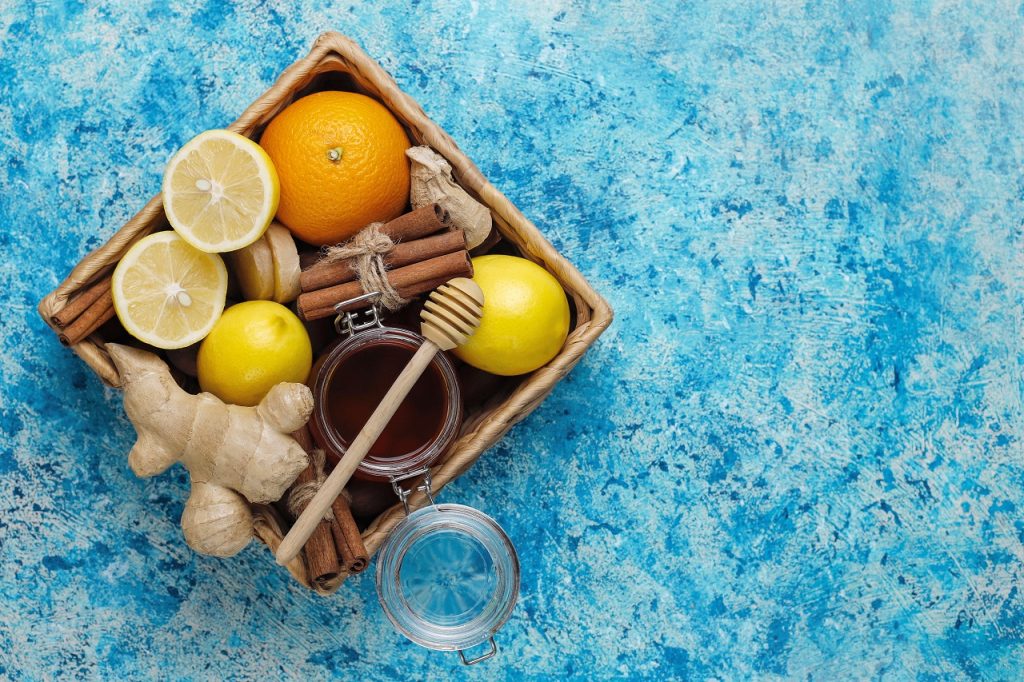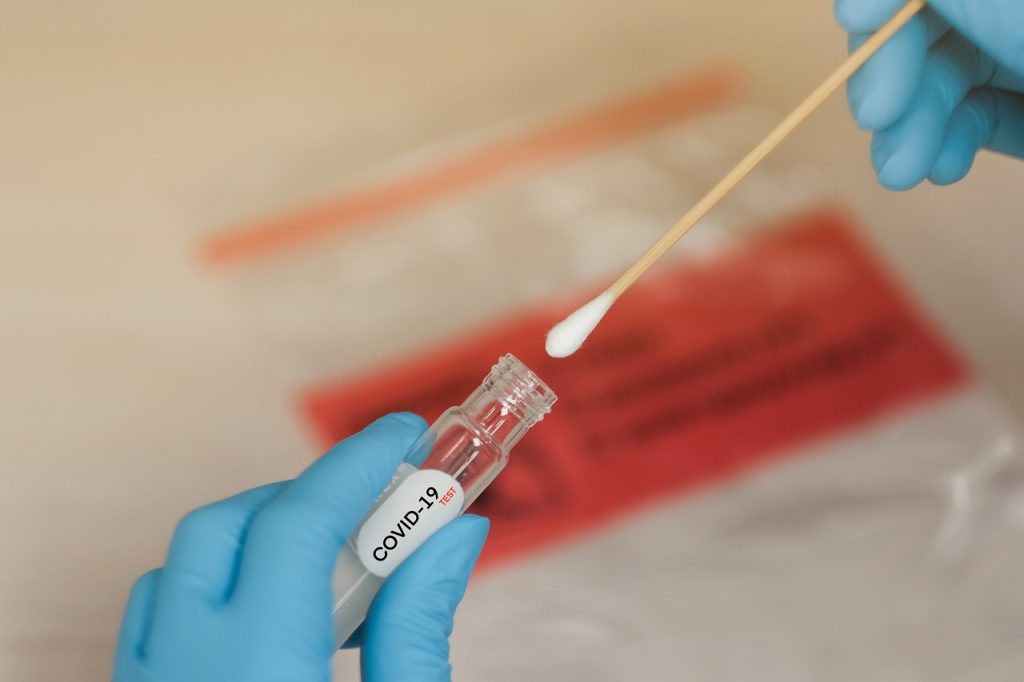
Vitamin D is a pro-hormone that is synthesized in the body when exposed to sunlight, and hence, is called the sunshine vitamin. Vitamin D is an extremely important vitamin that has powerful effects on several systems throughout our body.
Health Benefits of Vitamin D
- Promoting healthy bones and teeth.
- Supporting Immune, Brain and Nervous system health.
- Helps in regulating insulin levels, thus supports Diabetes Management.
- Helps maintain healthy lung function and cardiovascular health.
- Has a role in influencing the expression of genes involved in cancer development.
How Does It Improve Immunity Levels?
Human body fights infections using two types of immune systems – the innate system (responsible for quickly fighting infections) and the adaptive system (which produces a slower response but is highly specialised, e.g. responsible for the production of antibodies). Vitamin D seems to modulate both these systems which explains why this hormone has such a wide effect on the immune system.
Vitamin D deficiency is observed more in people suffering from seasonal nature of cold and flu outbreaks. During winters and seasonal changes, there is less sunlight, and less sunlight means less vitamin D available for absorption, which leads to lower immunity and more illness.
Why Do Immunity Cells Need Vitamin D?
Vitamin D has a “non-classic” role in modulation of the innate and adaptive immune responses of our body towards any illness or infection. What does this mean? Basically, Vit D receptors are found all over our body, including the immune cells. T cells are one of the immune cells known as the killer cells in our immune system which come into action when the body is under attack by an infective agent/invader/foreign pathogen.
If Vitamin D is not around, these “naïve” T cells will not become active and transform into the required killer cells or helper cells (which are charged with memory of the invaders). Many studies have concluded that T cells first search for Vitamin D in order to get activated and if they cannot find enough of it, will not complete the activation process, remain dormant and not act against the infection, leaving our body vulnerable to an attack.
Hence Vitamin D is very important for activating the T-cells of our immune system!
How Do You Get Enough Of Vitamin D?
1. Sunlight
Getting sufficient sunlight is the best way to help the body produce enough Vitamin D. Exposing your skin to the sun for 20 to 30 minutes a day would ensure enough UVB rays come in contact with the cholesterol in the skin, thus, providing the energy for Vitamin D synthesis to take place.
However, many factors affect how much Vit D a person gets from the sun, such as:
- Time of day: The skin produces more vitamin D when one is in the sun during the middle of the day (between 10 am to 1 pm), the time it is at its highest point in the sky.
- Sunscreen: Applying sunscreen tends to block the sun from hitting your body, thus, limiting the synthesis of the vitamin in your body. It is best to allow the sun’s UVB rays to come in contact with the body, directly in order to allow the production of Vitamin D to take place.
- Area of skin exposed: The more skin a person exposes, the more Vit D the body will make. So wearing minimum clothing, and exposing most parts of our body, will ensure greater production of the vitamin.
- Skin colour: People with a light colour skin absorb more UV rays, to produce Vit D more quickly than darker coloured skins, due to the presence of the pigment melanin.
- Place: Where a person lives in relation to the equator also has a significant impact on how much UV rays are available for absorption and production of Vit D
- Always Remember: Frequent, moderate exposure to the sun is healthy but prolonged exposure can be dangerous. Besides sunburn, you can be at a higher risk of developing skin cancer.
2. Food Sources
The best way to improve your Vit D levels is exposing yourself to sunlight, however, the consumption of certain foods can surely help increase vitamin levels in the body. These are:
- Fish (Salmon, trout, mackerel, and tuna)
- Egg yolks
- Cheese
- Mushrooms
- Fortified milk
- Fortified cereals and juices
3. Supplements
If you have less exposure to direct sunlight and are observing symptoms of Vit D deficiency which includes frequent illness, fatigue, tiredness, bone & back pain, depression, low bone mineral density, muscle pain, etc. you can start with supplementation but only after consulting a doctor or a certified nutritionist.
In India, the Indian Council of Medical Research (ICMR) recommends a daily supplement of 400 IU/day of Vit D, under situations of minimal exposure to sunlight or when symptoms of deficiency are observed.
Hope this article helps you understand the importance of the Sunshine Vitamin, especially to boost immunity. For more tips on boosting your immunity, reach out to a GOQii Coach by subscribing for personalized health coaching here: https://goqiiapp.page.link/bsr
#BeTheForce
 With the Omicron variant looming over our heads, there’s one very important thing to realize – the virus attacks people with a compromised or low immune system. A strong and properly functioning immune system helps by protecting you in your daily life as you come into contact with germs and bugs from other people, pets and the environment around you. Without a healthy immune system, you could pick up infections and infectious diseases more easily, and the effects could be serious – even fatal. So let’s look at ways in which we can improve immunity naturally!
With the Omicron variant looming over our heads, there’s one very important thing to realize – the virus attacks people with a compromised or low immune system. A strong and properly functioning immune system helps by protecting you in your daily life as you come into contact with germs and bugs from other people, pets and the environment around you. Without a healthy immune system, you could pick up infections and infectious diseases more easily, and the effects could be serious – even fatal. So let’s look at ways in which we can improve immunity naturally! 
 With most of us working from home and no options to go out to gyms/parks for our daily workouts, it can become challenging to stay motivated, to do regular workouts at home. No matter what your current situation, home is the best place to do a workout right now! If you are finding it difficult to set a routine, are not motivated enough, or don’t know how to keep yourself active, here some solutions to overcome the hurdles to home workouts!
With most of us working from home and no options to go out to gyms/parks for our daily workouts, it can become challenging to stay motivated, to do regular workouts at home. No matter what your current situation, home is the best place to do a workout right now! If you are finding it difficult to set a routine, are not motivated enough, or don’t know how to keep yourself active, here some solutions to overcome the hurdles to home workouts! 


